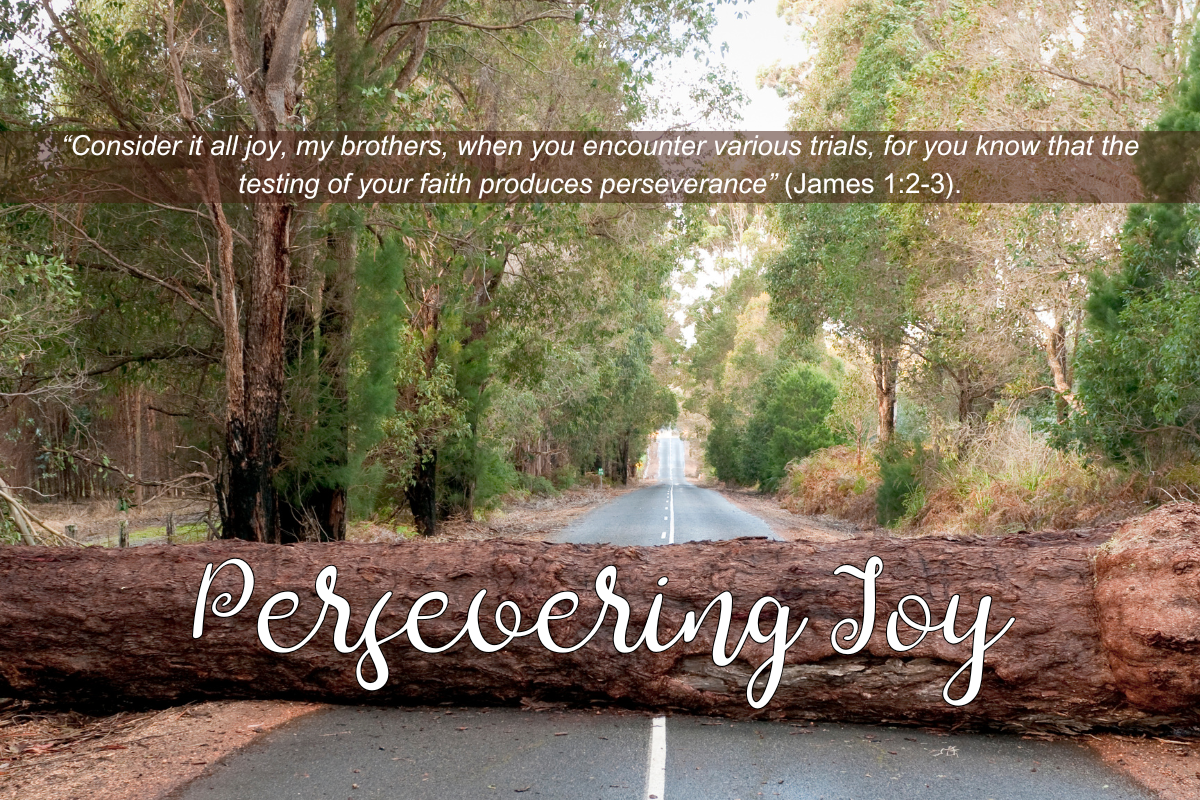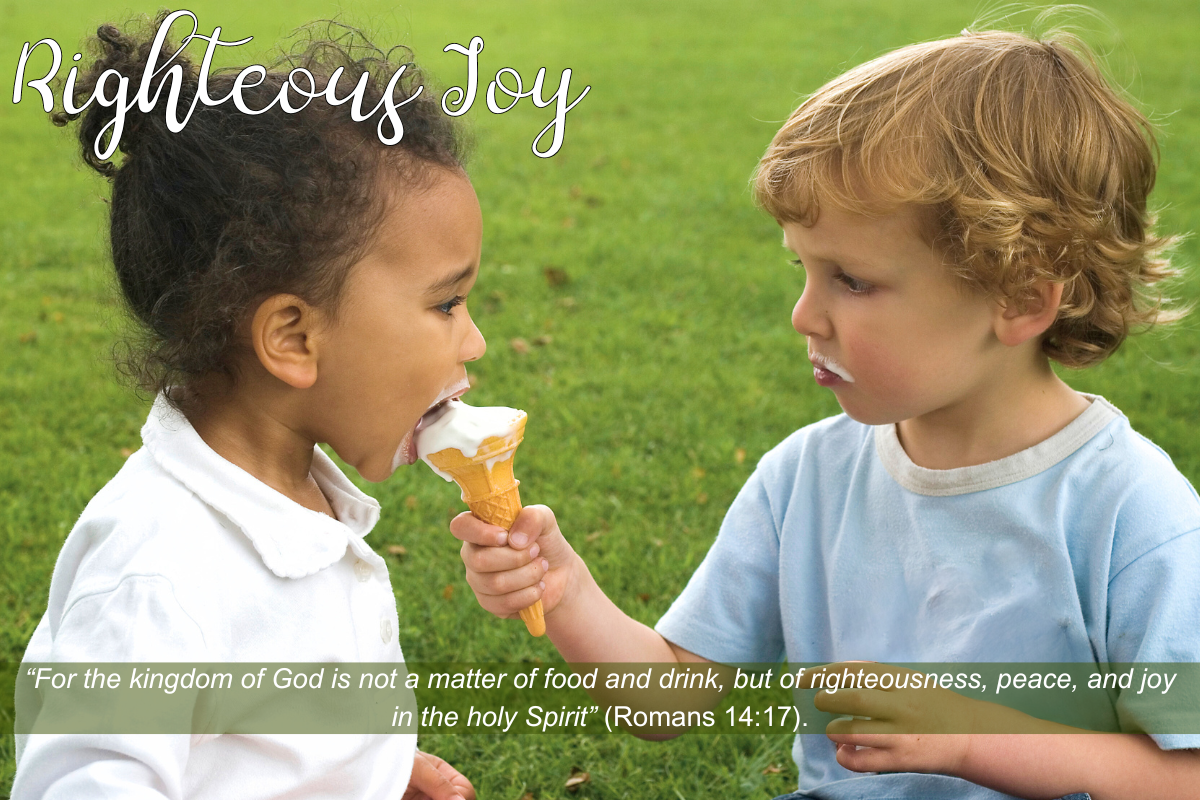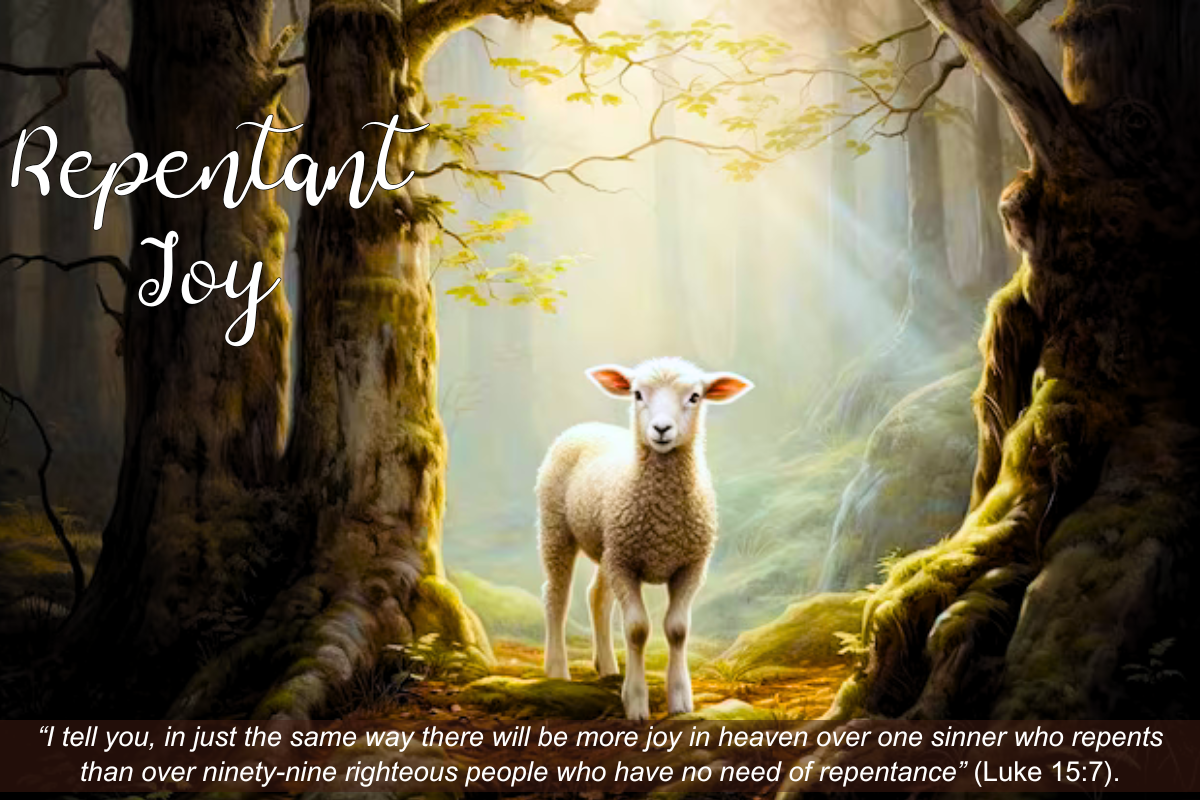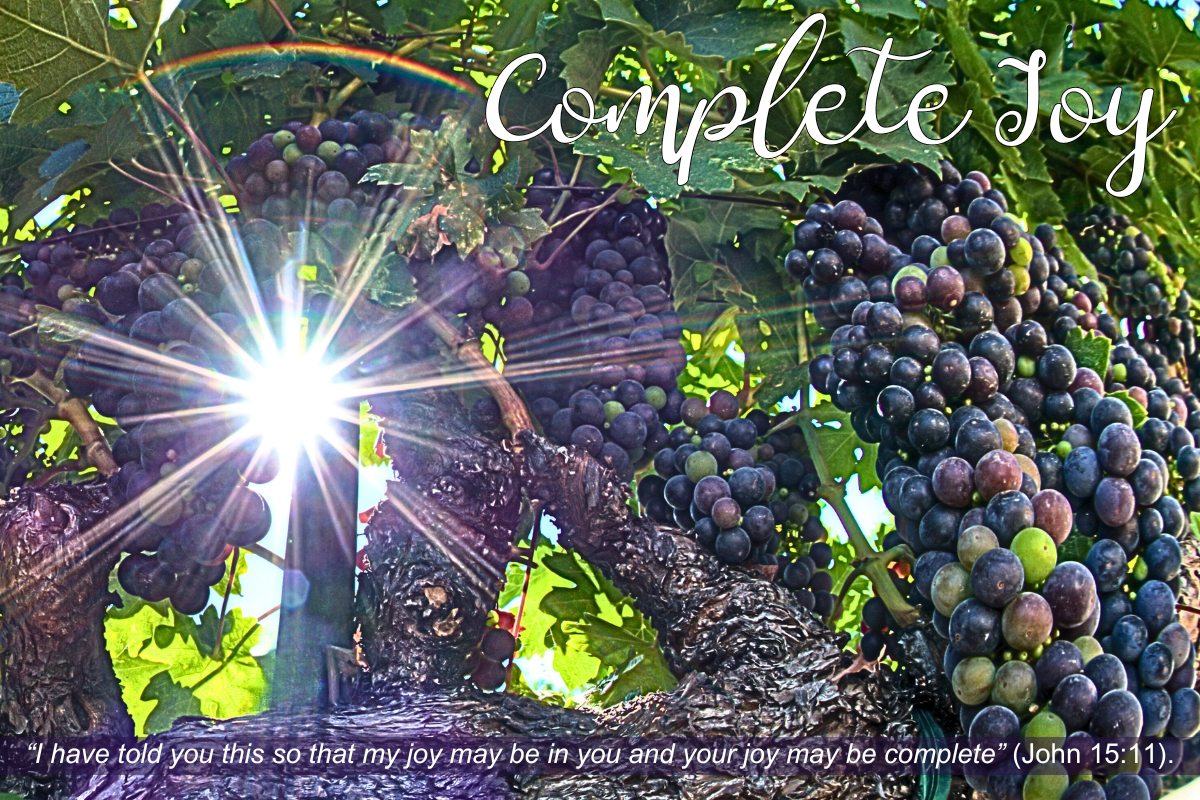Week Beginning September 29, 2024
Persevering Joy
With all of the creature comforts available in our modern lives, it is easy to shy away from the things that are difficult or cause us pain. Yet Saint Sebastian Valfrè warns that “When it is all over you will not regret having suffered; rather you will regret having suffered so little, and suffered that little so badly.” Throughout the ages, the saints remind us of the immense spiritual value placed upon our struggles. Saint Vincent de Paul remarks: “If we only knew the precious treasure hidden in infirmities, we would receive them with the same joy with which we receive the greatest benefits, and we would bear them without ever complaining or showing signs of weariness.”
This reframing of how we view our trials is explained beautifully by Saint James (James 1:2-8). Instead of seeing our difficulties as obstacles to our joy, he encourages us to embrace them as opportunities for spiritual growth. Hardships gain meaning when we realize that God uses them to teach us, shape us, fortify us, and draw us closer to Him.
Truly feeling joy in the midst of misfortune is challenging, especially when we lack understanding and wisdom. In these situations, Saint James instructs us to approach God in earnest faith. Those who trust in God’s plan are rewarded with His wisdom to strengthen their resolve, to view the long-term implications, and to navigate through complications. We are consoled by the knowledge that God does not abandon us when life gets hard and that His guidance is always available to us. Even when we struggle to understand the purpose of our trials, God provides the insight and clarity we need to continue.
Accepting our adversities with a joyful perspective helps us to endure them. This joy of perseverance is not a fleeting emotional response to happy circumstances, but rather it comes from the deep confidence that God is working through our trials. Saint Teresa of Ávila observes that “Suffering is a great favor. Remember that everything soon comes to an end…and take courage. Think of how our gain is eternal.” Although the affliction we suffer is temporary, the transformation we undergo lasts forever.
Transformation through trial is a process of refinement, similar to the way gold is refined by fire. When our faith is tested through suffering, we learn to persevere. This perseverance is not a passive endurance but an active reliance on God. Saint Padre Pio of Pietrelcina advises us that “The more you are afflicted, the more you ought to rejoice, because in the fire of tribulation the soul will become pure gold, worthy to be placed and to shine in the heavenly palace.” While the trial itself may be painful, our joy comes from the end result. We rejoice in the process of growth, recognizing that each challenge makes us more resilient and more aligned with God’s will. Trials are tools in God’s hands to build our character and make us more like Christ. With them, we are able to approach our setbacks with calm and hope. Without them, we forfeit our ability to maximize our God-given potential.
To cultivate perseverance, we must practice endurance through our daily inconveniences, learning to trust God with every cross. Each trial–no matter how big or small–is an opportunity to grow in perseverance. Our resilience develops as we train ourselves to pray through difficulties, to stand on God’s promises, and to wait for His deliverance. As we persevere, we experience God’s sustaining grace and provision, which gives us a joy that cannot be shaken.
Persevering joy is a sign of spiritual maturity. Perseverance makes us “perfect and complete, lacking in nothing” (James 1:4). This is the ultimate goal of our spiritual journey on earth—to become fully developed in our faith and character. Saint Augustine of Hippo reminds us that “God had one son on earth without sin, but never one without suffering.”
When faced with a challenge this week, ask yourself, “How is God using this to mature me in my faith?” And find solace in the words of Saint Ignatius Loyola: “If God sends you many sufferings, it is a sign that He has great plans for you and certainly wants to make you a saint.”
Week Beginning September 22, 2024
Righteous Joy
Theologian and scholar C. S. Lewis observes: “It would seem that Our Lord finds our desires not too strong, but too weak. We are half-hearted creatures, fooling about with drink and sex and ambition when infinite joy is offered us, like an ignorant child who wants to go on making mud pies in a slum because he cannot imagine what is meant by the offer of a holiday at the sea. We are far too easily pleased.” Even today, we see this at our church events. We hope that people who come for the food and fellowship will stay for the faith. Yet some of us hurry through the Mass which offers the actual Bread of Life only to savor the snacks at the reception. Others look forward to the drinks served after the service with little appreciation for the living water that quenches every thirst.
Saint Paul touches on this when he addresses the early Christians who are no longer bound to some of the rules contained in the Mosaic code (Romans 14). While many new followers of Christ accept that certain foods and practices are no longer unclean through the grace of God, other Christians express doubts that limit their participation outside of those restrictions. He challenges those who are enjoying the relaxed regulations to put their faith before their freedom, food, and fun. Do you come to Christ to enjoy worldly goods or to reap the greater rewards from participating in the Kingdom of God? He explains: “For the kingdom of God is not a matter of food and drink, but of righteousness, peace, and joy in the holy Spirit” (Romans 14:17).
Our greatest joy comes from living for the Kingdom, which means living in right relationship with God and shifting our values to align with God’s values. We are called to seek joy in the deep spiritual realities of God’s Kingdom rather than from rigid traditions and material possessions. When we walk together in righteousness, we are in harmony with God, creation, and each other. This fosters peace in our hearts and in our community, thus creating an environment for the joy of the Spirit to flourish free from discord.
Whether we are strict or lenient in our actions, whether we are weak or strong in our faith, we are all called to honor God who will judge us not by the preferences of other believers but in accordance with His justice. It is more important that we come together regarding undisputed truths than to quibble over trivial details. Whatever we do or do not do is ultimately for the Lord. Those unimportant distractions only pull us farther away from God. Therefore, having the liberty to behave a certain way does not make it appropriate if it leads our neighbors to violate their conscience. Similarly, we lack the authority to condemn those who do not follow our non-essential customs. We should remain true to our convictions without judging one another. Judgment comes from God alone.
Through the grace of God, we can build each other up rather than tear each other down. Making a small personal sacrifice for the sake of another’s conscience enables us to reflect Christ’s own sacrifice. Joy comes from witnessing the spiritual growth of others. Joy comes from showing the world the transformative power of the Holy Spirit that shines through our love and resilience even in the face of conflict. And joy comes from strengthening the body of Christ by glorifying God above all else.
This week, give up your mud pies for a vacation by the sea. Let go of any worldly notions that divide God’s people and limit your potential to grow His Kingdom here on earth. Open your heart to receive the joy of the Holy Spirit, and share that joy to elevate those around you. Abide by the words of Saint Teresa of Calcutta, who teaches us that “Joy is a net of love by which you can catch souls.”
Week Beginning September 15, 2024
Repentant Joy
The Parable of the Lost Sheep (Luke 15:1-7) beautifully links the act of repentance to divine joy in a way that is both humbling and awe-inspiring. Imagine that the Creator of the universe who upholds the stars and spins the galaxies throws a celestial party when one lone sinner repents. All of heaven rejoices on a cosmic level over something so deeply personal as a solitary individual turning back to God. And the soul that is restored and saved joins in that glorious celebration, for it was lost but now it is found.
Repentance is the catalyst for joy. In its simplest form, it is the act of turning away from sin and returning to God. The lost sheep represents an individual who has wandered away from the faith, and the shepherd’s pursuit symbolizes God’s relentless love and mercy. When the shepherd finds the sheep, he doesn’t scold it or lead it back with a leash of shame. He joyfully lifts it onto his shoulders, carrying it back to safety. Like the lost sheep brought back to the security of the flock, the repentant sinner returns to a proper relationship with God. Joy is not derived from the sinner being caught, but rather from the sinner being found.
This is the beauty of repentance–it is not simply turning away from something; it is also returning to Someone. The joy that ensues goes beyond relief that the sheep is back. It is elation over the triumph of grace. By returning, the sheep reveals the shepherd’s charity, patience, and perseverance. Repentance opens the door through which God’s grace floods in full force, washing away guilt and replacing it with joy–not only for the sinner but for all of heaven. That shared joy is at the heart of Christianity, reflecting God’s desire for reconciliation with humanity (2 Peter 3:9).
Repentant joy highlights the immense value God places on every soul. In our human terms, leaving ninety-nine sheep to find one seems disproportionate. In God’s economy, however, every single soul is precious. When a sinner repents, it represents more than another tally added to the Kingdom; it is the salvation of a particularly beloved individual. Repentant joy delights in the specific return of a unique soul to its rightful place with God.
The joy of repentance is not merely in the act of turning from sin, but also in God’s loving pursuit of sinners. It’s easy to think that we initiate our own repentance. But this parable reminds us that God is the author of our journey. The shepherd goes after the lost sheep, just as God seeks out sinners through His grace. Repentance is not solely a human effort; it is a cooperative response to God’s invitation to return to Him, which enables His joy to be fully realized in our souls.
Repentance is a turning point toward joy. The joy in this parable reflects the understanding that our repentance is transformative. It signals a shift from being lost to being found, from danger to safety, from isolation to community. The shepherd’s joy is that his sheep no longer wanders in peril but is back under his care. Likewise, when we repent, we are no longer walking in spiritual danger but are under the care and guidance of our Good Shepherd. Repentance is the bridge from spiritual death to life, and this is why God rejoices. Every act of repentance is a victory over sin, a rescue from destruction, and a reaffirmation of God’s life-giving power. Saint Philip Neri explains that “a person who is in a state of sin is always sad. Whatever he does, he is weary and disgusted with everything; while he who is at peace with God is always happy, always joyous.”
Repentant joy surpasses the pleasure of receiving what was lost, because it also encompasses the new beginning that follows. We experience a joyful reunion and jubilation over life restored. Joy is meant to be shared, and we are all called to join in the merriment when the lost are found. This week, accept your invitation to share in this joy by participating in God’s mission to seek the lost and to rejoice when they return.
Week Beginning September 8, 2024
Faithful Joy
Faithful joy is anchored in the eternal promises of God, the living hope in Christ, and the assurance of our imperishable inheritance. Because its origins are supernatural, it cannot be described using human words or measured by the standards of this world. In Saint Peter’s address to the Gentile converts of Asia Minor, he references the “indescribable and glorious joy” that results from our incredible privilege of loving the Lord and trusting in God’s plan for salvation (1 Peter 1:1-12).
Our love for Jesus is a response to his love for us, demonstrated by his sacrifice on the cross, his unfathomable mercy, and his promise of life everlasting. Love is the basis for our faith, and faith is the basis for our confident trust in the realities of the Gospel. The inner workings of God enable us to “see” through the eyes of our faith in the absence of outward signs. Our ineffable and resplendent joy pours out of our faith in the unseen and rests on spiritual truth rather than visible proof. In our hearts, Christ remains alive as our savior, active in our daily lives. “Blessed are those who have not seen and have believed” (John 20:29).
Pope Francis explains that “The joy of the Gospel fills the hearts and lives of all who encounter Jesus. Those who accept his offer of salvation are set free from sin, sorrow, inner emptiness and loneliness. With Christ joy is constantly born anew.” Our salvation starts now with the realization that we are made for eternal life, our sins can be forgiven, and we can become reconciled with God. Our faithful joy, flowing from that salvific gift, also starts now.
Saint Augustine proclaims that “True happiness is to rejoice in the truth, for to rejoice in the truth is to rejoice in You, O God, who are the truth.” He continues: “Those who think that there is another kind of happiness look for joy elsewhere, but theirs is not true joy.” Faithful joy transcends the ups and downs of this life and reminds us that we serve a greater purpose in His plan. It provides us with a glimpse of the future glory and our ultimate fulfillment in God.
This week, reflect upon the beauty of this passage. Note that Saint Peter concludes his address with a call for holy and reverent living. Consider how a pure lifestyle can increase your joy on earth as well as in heaven by bringing you closer to God. Saint Thérèse of Lisieux reminds us that “The world promises us pleasure, but it is only in Jesus that we find joy.”
Week Beginning September 1, 2024
Complete Joy
On the last night of his mortal ministry, Jesus reveals that our joy is fundamentally rooted in our relationship with him (John 15). Using the metaphor of the vine and the branches, he explains that true joy comes from abiding in him and living in his love. Joy, therefore, is a fruit of being deeply connected to Christ and drawing life from him. Just as the branches must remain connected to the vine to bear actual fruit, we must remain connected to Jesus to bear spiritual fruit. This ongoing relationship supplies the nourishment we need to sustain fruitful and fulfilling lives.
Our connection is grounded in the unchanging reality of Christ’s love and presence. When Jesus promises “that my joy may be in you and your joy may be complete” (John 15:11), he is giving us his own joy–a divinely perfected joy. This joy comes to us from God through our union with Christ by the power of the Holy Spirit. Unlike fleeting emotions from earthly pleasures, this sacred joy is not fragile, nor is it dependent upon external circumstances. Rather, it provides a steady sense of well-being by fully satisfying our souls. This complete form of joy lacks absolutely nothing and meets the most profound needs of our human hearts: communion with God, enduring peace with Him, and faith in eternal security.
Christ’s joy is derived from his loving relationship with the Father, his unwavering obedience to His will, and his total confidence in God’s plan. Love is the basis for everything, including trust in the Father and obedience to Him. Far from being a burden, living in accordance with God’s will leads us to experience His love more fully. As we align our lives with His design, we gain the imperishable contentment that comes from living out the purpose for which we are created. Obedience to the Lord leads to a life that is filled with love, rich in meaning, and complete with the lasting joy this world cannot offer.
Saint Josemaría Escrivá advises us that “The cheerfulness you should have is not the kind we might call physiological good spirits–the happiness of a healthy animal. You must seek something more: the supernatural happiness that comes from the abandonment of everything and the abandonment of yourself into the loving arms of our Father–God.” This week, think about the joy in your life. If you are not yet blessed with Christian joy, consider how you can connect better with Christ. If you are flourishing joyfully, consider how you can spread that joy.
Whatever gifts we receive from God must be shared with others. In turn, we receive even more of those gifts. The same applies to love and joy. When we lovingly and joyfully engage in our community, we benefit from that common fellowship. As we love one another as Jesus loves us, our joy multiplies throughout our relationships, inspiring others to grow in faith and charity.





